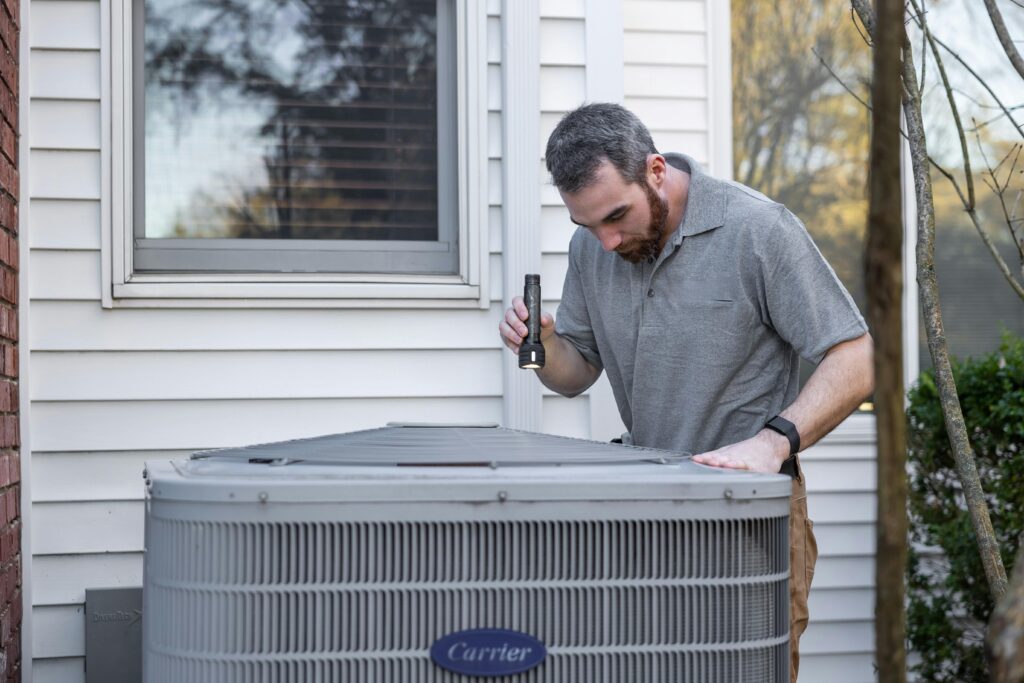What to Look for When Hiring an HVAC Technician
Are you considering a career as an HVAC technician?
Understanding essential skills, salary expectations, and career advancement opportunities is crucial before making this decision. An HVAC technician specializes in installing, maintaining, and repairing heating, ventilation, and air conditioning systems that regulate indoor temperature and air quality. This profession demands mechanical skills, customer service abilities, and technical knowledge while offering competitive wages and excellent job security.
This guide breaks down critical skills you need, realistic salary ranges at different career stages, and the clear career path from entry-level technician to seasoned professional.
Essential Skills Every HVAC Technician Must Master
Success as an HVAC technician requires mastering mechanical skills, including understanding thermodynamics, reading technical diagrams, and working with cooling systems, heating systems, and refrigeration systems. Equally critical are electrical skills—checking electrical circuits, troubleshooting electrical wiring, repairing electrical power distribution components, and diagnosing control systems safely.
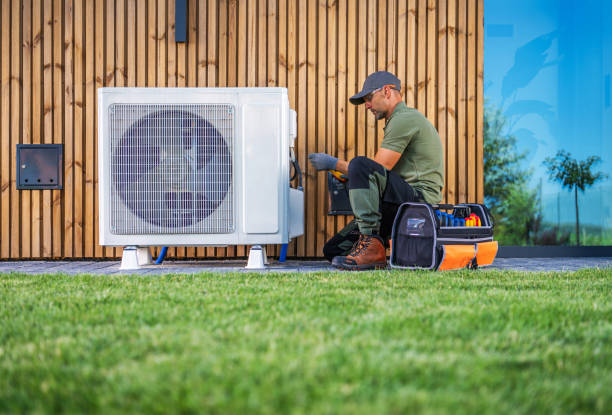
Customer service skills rank among the most valuable assets for career advancement. An HVAC tech must explain complex issues clearly, build trust with clients, and maintain a professional demeanor.
Physical fitness is essential for lifting 50-100+ pound equipment, including heat pumps and air conditioning units, working in confined spaces, and following safety precautions when handling electrical power, refrigerants, and hazardous materials per Environmental Protection Agency guidelines.
Verify Certifications and Licensing Requirements
Always confirm your HVAC technician holds proper certifications before hiring. Understanding HVAC basics helps you ask informed questions about their qualifications. The Environmental Protection Agency (EPA) mandates Section 608 certification for all technicians working with refrigerants in hvac systems and hvacr systems.
Essential Credentials Checklist
| Certification/License | Required By | What It Verifies | How to Verify |
| EPA Section 608 | Federal Law | Proper refrigerant handling for air conditioning and refrigeration systems | Request certification card with photo ID |
| State HVAC License | State Law (varies) | Technical competency and legal authority to work | Check state licensing board website |
| HVAC Excellence Certification | Industry Standard | Specialized heating ventilation air conditioning skills | Ask for current certification number |
| Liability Insurance | Best Practice | Protection for property damage | Request certificate of insurance |
| Workers’ Compensation | State Law (varies) | Coverage for technician injuries on your property | Verify with insurance provider |
| Business License | Local Law | Legal operation in your area | Check with city/county clerk |
Professional certifications from organizations like HVAC Excellence demonstrate competency in specialized areas. The U.S. Department of Labor recognizes formal apprenticeship completion. Experienced qualified technicians should readily provide proof of certifications, insurance, and bonding. Callidus Air technicians maintain all required certifications and undergo continuous training to stay current with industry standards.
What Does an Air Conditioning and HVAC Technician Do?
HVAC technicians work on diverse tasks combining technical problem-solving and customer interaction. They diagnose issues with air conditioning systems, heating systems, and ventilation systems using diagnostic tools like multimeters for checking electrical circuits and manifold gauges for refrigerant pressures. Working with both HVAC systems and HVACR systems requires understanding air conditioning and refrigeration principles. Installation responsibilities include connecting electrical wiring, running refrigerant lines, and commissioning heating, ventilation air conditioning equipment—skills essential when helping customers understand how to choose HVAC system options for their needs.
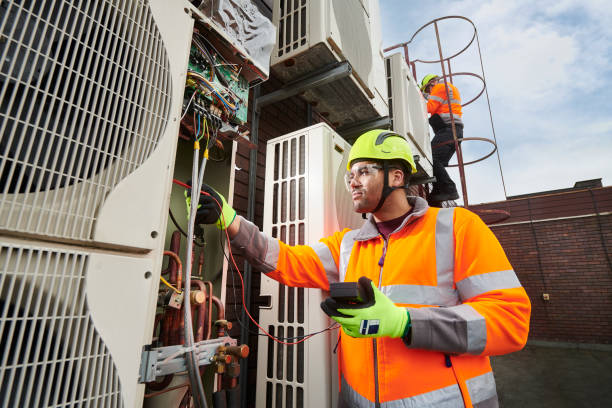
Routine maintenance constitutes a major responsibility, including replacing filters, cleaning coils, checking electrical circuits, and testing controls. Technicians often recommend the best air filter for home solutions and the best air purifiers to improve indoor air quality. Preventive AC maintenance and heating maintenance identify problems before failures, preventing emergency breakdowns during extreme weather.
Important Questions to Ask Before Hiring
When interviewing potential HVAC technicians, gather comprehensive information about their qualifications and approach. Here are critical questions to ask:
About Their Experience:
- How many years have you worked with heating ventilation air conditioning systems?
- Have you worked on my specific how to choose HVAC system brand and model?
- Can you provide references from customers with similar projects in the past 6 months?
- What percentage of your work involves hvac systems versus hvacr systems?
- Are you factory-certified for my equipment manufacturer?
About the Service Process:
- What is your diagnostic process for air conditioning and refrigeration problems?
- How long will the repair or installation take?
- What warranty do you offer on parts and labor?
- Will you explain what you find during AC maintenance or heating maintenance inspections?
- Do you provide written estimates before starting work?
About Air Quality and Efficiency:
- Do you recommend best air filter for home solutions for my system?
- Can you suggest best air purifiers to improve indoor air quality?
- Will you assess my system’s energy efficiency and suggest improvements?
- How do you ensure proper refrigerant levels in air conditioning systems?
Quality air conditioning contractors provide transparent communication, detailed estimates, and educate customers about their hvac systems rather than using confusing technical jargon.
Tools and Technology in Modern HVAC Work
Modern HVAC technicians rely on sophisticated diagnostic equipment, including digital multimeters for checking electrical circuits, manifold gauge sets for refrigerant pressures, combustion analyzers for heating systems efficiency, infrared thermometers, leak detectors, and airflow meters. Digital technology, like tablets with technical manuals, Bluetooth-connected diagnostic equipment, and built-in system diagnostics, helps technicians identify problems faster.
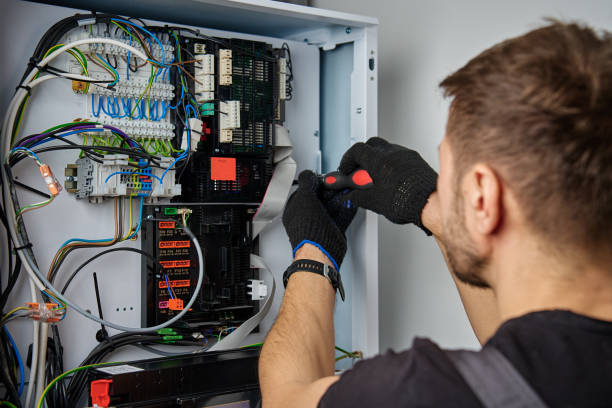
Basic hand tools include screwdrivers, wrenches, pliers, and pipe cutters, while power tools like drills and reciprocating saws aid installation. Tool investment for HVAC techs can reach several thousand dollars, though many employers provide company vehicles and major equipment.
Specialization Opportunities for Air Conditioning Contractors
The HVAC industry offers diverse specialization paths for HVAC technicians and air conditioning contractors. Residential HVAC services specialists work in homes installing furnaces, air conditioning systems, and heat pumps—often advising homeowners on the best central AC brands for their needs. Commercial HVAC service specialists handle larger HVAC systems in office buildings with multiple zones and building automation, typically earning 20-30% more due to complexity.
Refrigeration specialists focus on commercial air conditioning and refrigeration systems in restaurants and food processing facilities where temperature control impacts food safety. Building automation specialists program computerized HVAC systems, managing heating, ventilation, air conditioning components, lighting, and security, often earning premium compensation exceeding traditional HVAC tech salaries by 20-30% as buildings become increasingly “smart.”
Working Environment and Typical Schedule
HVAC technicians work in diverse environments from residential attics to commercial rooftops and industrial mechanical rooms, encountering temperature extremes and confined spaces. Work schedules typically follow standard business hours, though peak seasons require extended hours, weekends, and on-call availability, earning premium pay.
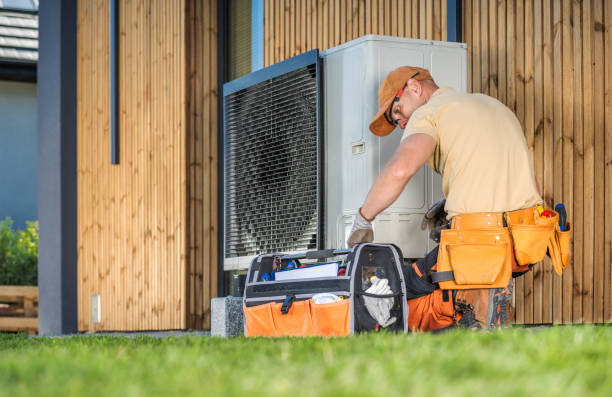
Physical demands include climbing ladders, carrying heavy equipment, and working in awkward positions. Exposure to potential occupational safety hazards, including electrical power, refrigerants, and falls, requires constant attention to safety protocols.
Red Flags to Avoid When Hiring
Be cautious of HVAC technicians who display these warning signs. Protecting yourself from unqualified or unscrupulous contractors saves money and prevents safety hazards.
Documentation and Licensing Red Flags:
- Cannot provide proof of EPA Section 608 certification or proper licensing
- Refuses to show insurance certificates or says they’re “covered by someone else”
- Has no business license or provides vague business information
- Cannot provide verifiable references or work history
- Avoids giving written estimates or contracts
Pricing and Payment Red Flags:
- Requires full payment upfront before starting any work
- Offers prices significantly lower than other quotes (too good to be true)
- Pressures you for immediate decisions without time to compare options
- Vague or unclear pricing with hidden fees
- Only accepts cash payments with no receipt
Professional Conduct Red Flags:
- Immediately recommends complete system replacement without thorough diagnostics
- Cannot explain how hvac systems and hvacr systems function in simple terms
- Discourages you from getting second opinions on major repairs
- Provides vague explanations or refuses to answer technical questions
- Shows up without proper tools or company vehicle identification
- Doesn’t follow safety protocols when working with electrical power or refrigerants
Service Quality Red Flags:
- Uses generic parts instead of manufacturer-specified components
- Rushes through air conditioning and refrigeration system inspections
- Skips testing after repairs or installations
- Cannot provide warranty information in writing
- Disappears after the job without providing service records
Companies like Callidus Air prioritize transparency, provide detailed diagnostics, and help customers understand heating ventilation air conditioning system issues before recommending repairs. Quality air conditioning contractors build trust through professionalism and expertise.
In Summary
Finding the right HVAC technician requires careful evaluation of certifications, experience, customer service skills, and professional conduct. Verify EPA Section 608 certification, check licensing requirements, ask detailed questions, and watch for red flags. Quality air conditioning contractors demonstrate technical expertise in heating ventilation air conditioning systems while communicating clearly and respecting your property.
Don’t compromise on HVAC service quality—your comfort and safety depend on skilled professionals. Contact Callidus Air today to connect with certified, experienced HVAC technicians who prioritize customer satisfaction and deliver reliable service for all your heating, cooling, and air quality needs.
Frequently Asked Questions
How do I verify an HVAC technician’s EPA certification?
Ask to see their EPA Section 608 certification card, which should include a photo, certification number, and expiration date. You can verify the certification through the EPA’s certification database or contact the issuing organization. All legitimate HVAC technicians working with refrigerants in air conditioning and refrigeration systems must have this federal certification. If a technician cannot provide proof or seems hesitant, consider that a major red flag.
What questions should I ask when getting quotes from air conditioning contractors?
Request detailed written estimates that include labor costs, parts specifications, timeline, and warranty information. Ask about their experience with your specific hvac systems brand and model. Inquire about their diagnostic process, what’s included in routine maintenance, and whether they offer emergency services. Quality air conditioning contractors will explain their pricing clearly and never pressure you for immediate decisions.
How can I tell if an HVAC technician is trying to upsell unnecessary services?
Professional HVAC technicians explain why specific repairs or replacements are needed, showing you the worn or defective parts when possible. Be cautious if they immediately recommend complete system replacement without thorough diagnostics of your heating ventilation air conditioning equipment. Get second opinions on major repairs, especially if the technician cannot clearly explain the problem or uses scare tactics. Reputable companies like Callidus Air prioritize honesty and provide multiple options with transparent explanations.
What’s the difference between residential and commercial HVAC service technicians?
Residential HVAC technicians work on smaller hvac systems in homes, while commercial specialists handle larger, more complex hvacr systems in office buildings and industrial facilities. Commercial systems often involve building automation, multiple zones, and specialized equipment. Ensure the technician has specific experience with your property type—residential technicians may lack expertise for commercial air conditioning and refrigeration systems.
Should I hire the cheapest HVAC technician I can find?
Price shouldn’t be your only consideration. Extremely low bids often indicate uninsured contractors, substandard parts, or inexperienced workers. Focus on value—qualified technicians with proper certifications, insurance, and good reputations may charge more but provide reliable service that prevents costly future repairs. Balance competitive pricing with verified credentials and positive reviews.

